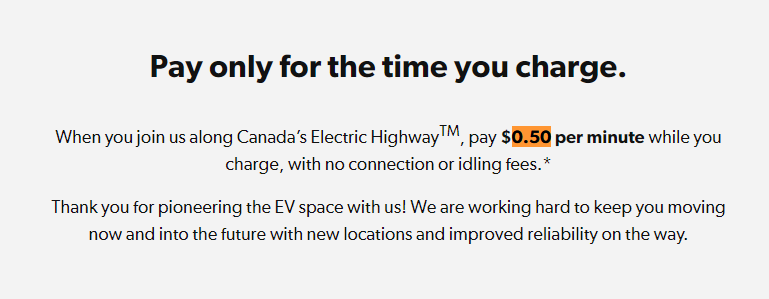
Petro-Canada’s Electric Highway, which allows electric vehicles to drive all the way from the Rockies to the Maritimes, is set to become a lot more expensive for Canadians, as reported by DriveTeslaCanada.
Initially, EV owners paid by the minute when charging up their vehicles, with different rates across different provinces. Rates in New Brunswick and Nova Scotia were as low as $0.25 per minute, while stopping to charge in Alberta, Manitoba, Ontario, or Saskatchewan cost Canadians as high as $0.33 per minute. Rates for the province of British Columbia were $0.27 originally. That averages to about $0.283 across all provinces.
Now, according to Petro-Canada’s website, it is putting in a $0.50 per minute flat rate across all provinces. “When you join us along Canada’s Electric Highway, pay $0.50 per minute while you charge, with no connection or idling fees,” reads the oil giant’s website.
Quebec, which used to boast charging rates as low as $0.20 per minute until this summer, recently saw Petro-Canada raise charging costs to a whopping $0.45 per minute, however, that rate is still lower when compared to what Canadians driving on the ‘Electric Highway’ would now have to pay.
The price increase went into effect on Tuesday, November 1st.
According to Suncor, Petro-Canada’s parent company, the rate hike was put in place to cover the cost of operations. Read Suncor’s full statement below:
“We’re always working to improve the charging experience for our Petro-Canada EV charger customers. The price change, which took effect on November 1, will help to cover the costs of operation and expansion of the network. It will also improve our ability to make our chargers more reliable and continue to offer improved features.”
Increasing rates to meet the cost of operation and to expand the network of chargers is acceptable and justified. However, raising it over 70 percent overnight is sure to sting Canadians that have to drive on the route often.
Source: DriveTeslaCanada.



